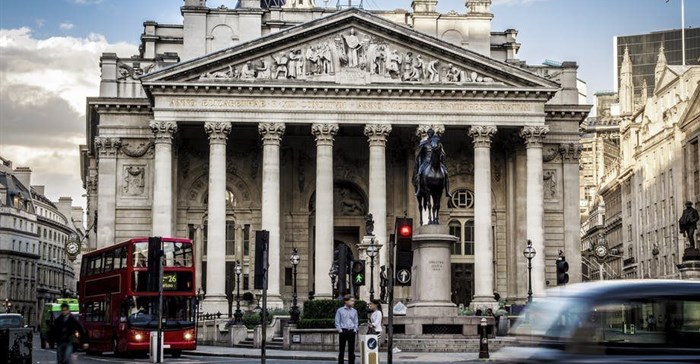
Related

Is BNPL reshaping South Africa's retail credit trends in 2025?
Regan Adams 19 May 2025


Food retailers to gain as inflation pressure mounts in SA
Ann Sebastian 19 Mar 2025

Top stories






More news














But the Bank of England may defy market watchers and other financial institutions, raising interest rates in the event of a no-deal Brexit. And that could add to the economic catastrophe of the UK crashing out of the European Union.
This would be disastrous and compound the negative impact on the British economy.
Before its September meeting, the bank’s monetary policy committee (MPC) offered a consistent, hold-the-line message. Its central projections for monetary policy were based on the assumption of a managed Brexit, with a stable relationship between the UK and its main trading partners. Under this scenario, rates would increase because the labour market and wage growth – vital economic indicators for the MPC – remained strong.
But on September 18, the MPC appeared to concede that the likelihood of a no-deal Brexit had significantly increased. It recognised that the British economy “could follow a wide range of paths over coming years”. As a consequence, “the monetary policy response would not be automatic and could be in either direction”.
The official line was that rates might be cut or might be raised. It leaves the feeling that the Bank of England is even more uncertain about the future than before.
The case for a rate cut is fairly simple. In the event of a no-deal Brexit, the economy will slow. Trading with overseas partners will falter due to tariffs and customs barriers. Costs for domestic producers and even the service sector will rise almost immediately as they can no longer trade freely with the EU and because of changes to the exchange rate. Consumer spending, a key driver of the UK economy, will fall, driven partly by greater uncertainty and partly by rising living costs.
So a rate cut and more quantitative easing by the Bank of England is potentially a mechanism for opening the flow of credit to firms and households.
But the case for a rate hike may be equally compelling. A no-deal Brexit will cause a massive and immediate hit to the pound, even worse than just after the June 2016 referendum. The cost of living will rise dramatically. In 2016, the Bank of England chose to weather the storm and rightly assumed that inflation would fall in the medium term. This time might be different.
The biggest indicator from the most recent MPC to suggest that the bank is inclined to raise rates was the emphasis on government spending. Central banks across advanced economies have recently highlighted the limitations of monetary policy such as raising or lowering interest rates to promote a sustained economic recovery. Instead, they argue, any upturn depends on greater fiscal stimulus in the form of government spending to kickstart the economy.
Based on the Boris Johnson government’s talk of more money for the police, schools, hospitals and transport infrastructure, it seems he’s been paying attention. Its spending package could be a decisive factor in the bank’s future moves. Hence the significance of the MPC’s mention of the government’s proposals.
In recent years, the bank has consistently argued that it would probably prioritise the fight against inflation over the pursuit of economic recovery. The conditions that allowed the US Federal Reserve to cut rates do not apply in the UK. And the severity of the fallout from a no-deal Brexit will require – at least in the bank’s mind – a rate hike.
But this would be disastrous for the UK economy. Not only would a hike compound economic stagnation, but the burden would fall on those already reeling from Brexit uncertainty: numerous studies have shown that even small increases in interest rates hurt heavily indebted middle-income earners in the UK the most.
Then, there is the whiplash effect on financial markets, given that they are convinced that a rate cut is a foregone conclusion. This might even lead to a run on the pound, which could force the Bank of England and the Treasury to intervene to defend the currency for the first time since 1992. There is even some evidence that the bank has been bolstering its foreign currency reserves since early 2016 to prepare for such a scenario.
Given the dilemma the bank is facing, perhaps the best for which Britain can hope is that it weathers the storm, as in 2016, and simply holds rates in the event of a no-deal Brexit.
But that hope comes with a rider: do not rule out the unexpected.
This article is republished from The Conversation under a Creative Commons license. Read the original article.![]()

The Conversation Africa is an independent source of news and views from the academic and research community. Its aim is to promote better understanding of current affairs and complex issues, and allow for a better quality of public discourse and conversation.
Go to: https://theconversation.com/africa